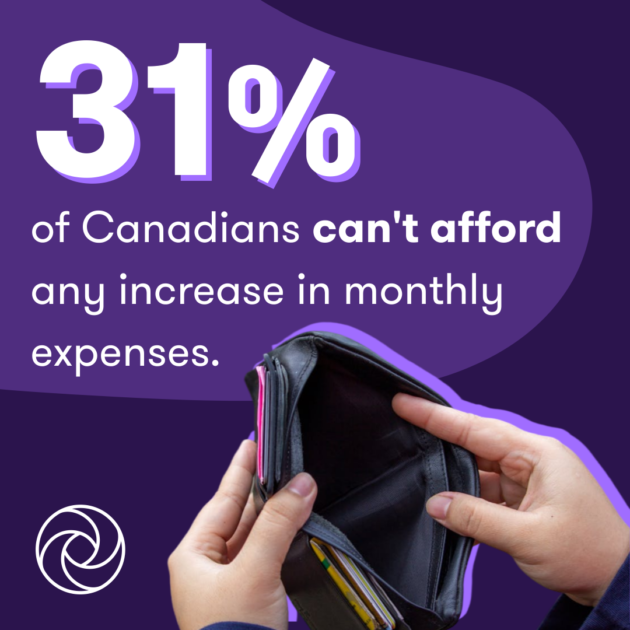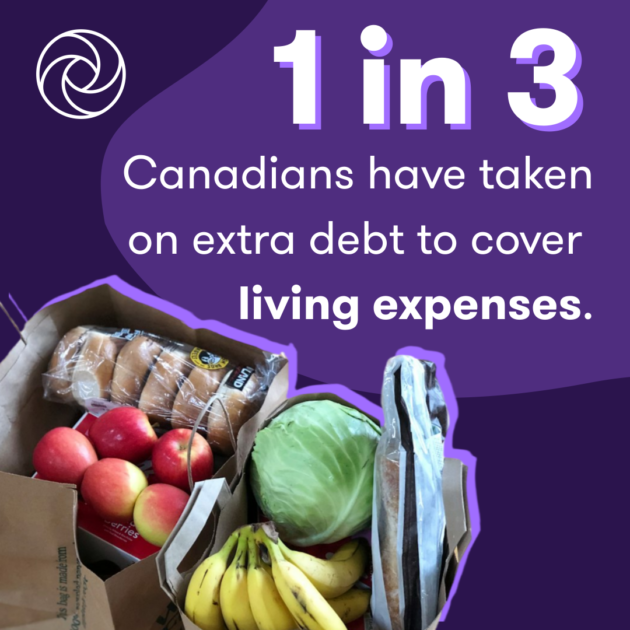Navigating the storm: How Canadians are handling rising debt

Canada has the highest level of household debt to disposable income of any G7 country. Several economic factors, including high interest rates and inflation, have increased the debt burden on Canadian households.
We asked Canadians how they’re managing their debt and what they’re doing to weather the affordability crisis. Here’s what they said:

Nine in ten Canadians (88%) have had their personal finances impacted by the rising cost of living.
- Over two-thirds (66%) of Canadians have already cut back on non-essential expenses.
- Households with an income of $100,000 or more are feeling the financial stress: a majority (59%) have cut back on non-essentials.
- More than half of Canadians (58%) can’t afford to put any money into savings.
- Over one-third (35%) of Canadians have cut back on essentials, like groceries and medication.

Half of Canadians (49%) are "very concerned" about how high living costs and interest rates will impact their finances.

Almost one-third (31%) of Canadians cannot afford any increase at all in monthly living expenses. For those with a household income below $50,000, the figure is nearly half (46%).

One-third of Canadians (30%) have said they incurred more debt to cover costs as a result of the rising cost of living.
In 2024, 63% of Canadians feel pessimistic about their financial situation, while only 29% feel optimistic. The gap is larger among those aged 18-34 (72% and 22% respectively) and especially wide for households making under $50,000 (73% and 17%).
How can Canadians reduce financial stress?
To manage these challenging times, Canadians should focus on what they can do rather than what’s out of their control. You can improve your financial future by creating a budget, reducing unnecessary spending, and paying off debt. If you need debt relief, reach out to one of our experienced debt solutions professionals today.
About the survey.
These are the findings of a study conducted by Grant Thornton in February 2024 among a nationally representative sample of 1,515 Canadians balanced and weighted on age, gender, region, and education. The survey was offered in both English and French. For comparison purposes only, a sample of this size would yield a margin of error of +/- 2.5 percentage points at a 95% confidence level.
Take the first step to debt freedom
Speak to one of our debt solutions professionals during a free, no-obligation consultation.
Related articles

Family finance: The emotional cost of financially supporting family

Caught in the odds: Understanding gambling debt and how to get help

How can a Licensed Insolvency Trustee help with my debt?

Do you owe CERB debt? Here's what Canadians need to know about repayment

How much debt is normal in your province?

Can I file for bankruptcy if I own a house?

4 common investment scams and how to avoid them
Looking for assurance, tax, and business advisory services? Visit Doane Grant Thornton LLP.

Loading